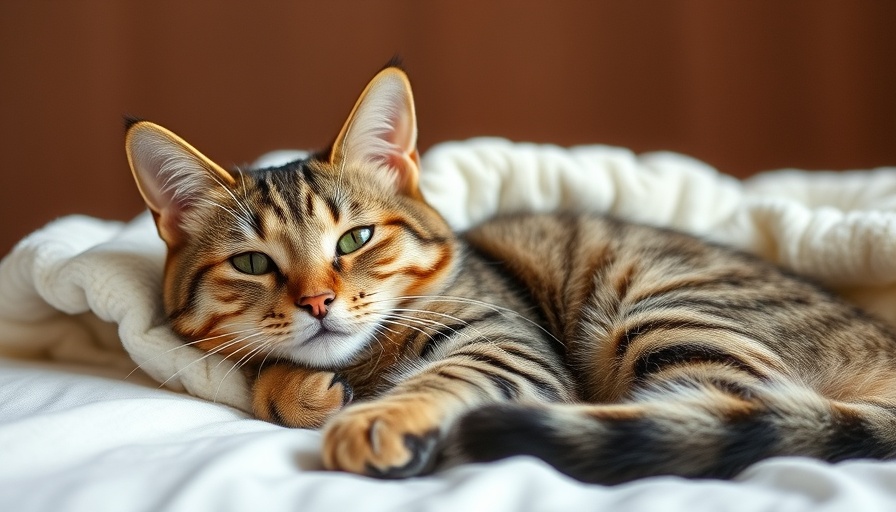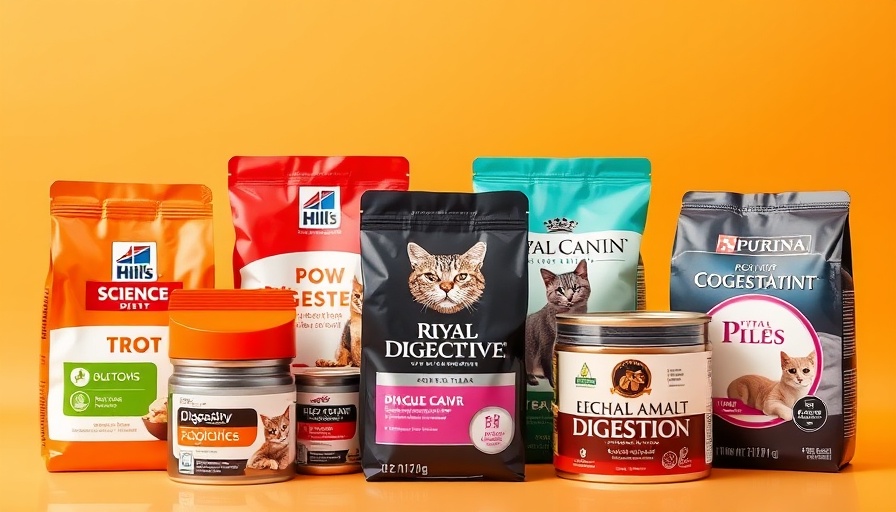
Understanding Bird Flu: An Emerging Threat to Pets
As pet owners, the health of our beloved companions is always a priority. The recent emergence of Highly Pathogenic Avian Influenza (HPAI) A(H5N1) poses a significant threat not only to wild birds and poultry but also to domestic cats and captive wild animals. The CDC highlights that animals like tigers, red foxes, and even our household cats are at risk, making it essential for caretakers and pet owners to stay informed and take necessary precautions.
Why Pet Owners Should Be Concerned
While HPAI mostly impacts birds, the infections have been reported in domestic cats across the U.S. The common signs of infection can range from mild symptoms to severe neurological issues and, in some cases, unexpected death. Symptoms in cats may include decreased energy, appetite loss, and respiratory problems. Being aware of these signs is crucial for early detection and care.
Precautionary Measures for Pet Care
Veterinarians recommend several precautions for those in close contact with pets, especially in settings like animal shelters and sanctuaries, where interaction with various species increases the risk. If you suspect your cat has been exposed to HPAI A(H5N1), isolate them from other pets and seek veterinary care immediately. Precautions include:
- Avoid raw or undercooked meat and unpasteurized dairy for your pets.
- Limit contact with wild birds and other potentially infected animals.
- Sanitize hands and equipment after handling pets to prevent contaminating other animals.
Creating a Safe Environment
Since HPAI can spread through contaminated environments, taking steps to create a safe space for pets is vital. Consider implementing ventilation and other engineering controls in areas where animals are housed. Regular cleaning of communal spaces can significantly reduce the risk of transmission.
What Should Pet Owners Do?
Pet owners must remain vigilant. Regularly check with your veterinarian about the current status of HPAI in your area and engage in conversation about vaccines or preventive treatments available for pets. The CDC also emphasizes the importance of reporting any unusual health issues in pets to local veterinary authorities.
A Shared Responsibility
As pet owners, we share a responsibility to protect not just our pets but also the wider ecosystem. Participating in awareness campaigns and spreading education about avian influenza can help mitigate risks within our communities. Connecting with fellow pet owners through local forums and social media can also be beneficial in sharing knowledge and resources.
Final Thoughts
In light of the HPAI A(H5N1) threats, it’s essential to remember that informed pet ownership is critical. By staying aware, following guidelines from health authorities like the CDC, and advocating for our pets, we contribute to a healthier environment for everyone. The well-being of our pets reflects our love and commitment to them, and together, we can ensure they stay safe.
Keep your pets safe! Consult your veterinarian for personalized advice regarding HPAI A(H5N1) and maintain observant care for your furry companions. As we navigate these challenges, we can empower each other toward healthier living for our loved ones.
 Add Row
Add Row  Add
Add 




Write A Comment